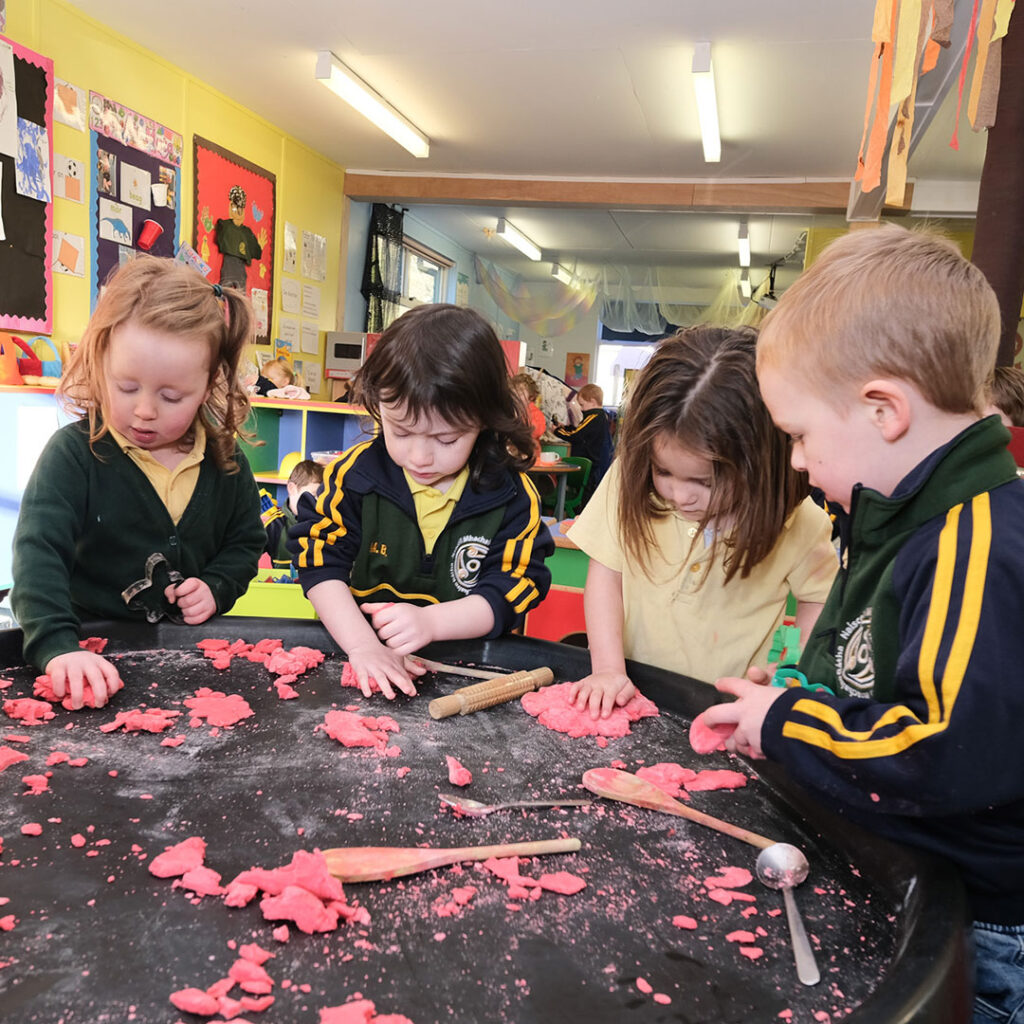Proven Advantages of Irish Medium Education
Irish-medium education has become the preferred choice for an increasing number of parents throughout Ireland in recent years. Irish-medium schools follow the immersion method of education, allowing children to acquire the language naturally through daily experience of an Irish-language environment. Research in the last decade by neurologists, psychologists and linguists is revealing a swathe of cognitive and social benefits for bilinguals.

Why Choose Irish Medium Education?
Children Become Fluent Bilinguals
This occurs naturally without the children having to ‘learn’ the language in the traditional sense. Immersion education is regarded by many as the most effective means of learning a second language.
Employment Benefits
Irish is the best modern language to have in seeking employment in Ireland in the 21st Century. Opportunities are to be found in the rapidly growing education sector, the media, publishing, translation, the civil service as well as youth and community work.
Improved Performance in English and Maths
Research has shown that children who received their primary education in the Irish-medium sector, on average, demonstrate higher levels of attainment in English and Maths than their monolingual counterparts. “Irish language primary schools are outperforming English language schools not only in Maths but in English, figures have revealed”.
Improved Life Chances
In later life, bilingual children have been shown on average to have higher educational attainment, improved employment prospects and higher earnings than their monolingual counterparts. A research briefing published by the Department of Education indicated that former pupils of Irish-medium schools attained a higher academic standard than might be expected amongst the general population of the same age group (Gallagher and Hanna 2002).
Improved Problem Solving Abilities
Research has shown that bilingual children, on average, demonstrate higher problem solving abilities, better attention and task switching capacities than their monolingual counterparts. Bilingual children outperform children who speak only one language in problem-solving skills and creative thinking, according to a study conducted by Strathclyde University with colleagues from the University of Cagliari in Sardinia (Aug 2012).
Easier to Learn a Foreign Language
Bilingual children are much more likely to learn foreign languages to a higher level of fluency than their monolingual counterparts.
Better Memory
Learning a second language is beneficial for overall cognitive development, including memory. Since bilinguals have to store two sets of vocabulary in their mind and are used to accessing the correct one, they get great practice at storing and using information. Plus, good memory helps with studying, another reason bilingual students do better in school than monolinguals.
Community and Social Benefits
Children become part of a young, vibrant Irish-speaking community and develop a strong sense of belonging, with a broader cultural experience and increased understanding and acceptance of other languages and cultures. Research commissioned by the Department of Education indicated that pupils of Irish-medium education in the north had a very positive attitude to the educational and cultural experience they received, and that, due to the cultural enrichment these children experienced, on the whole they were more open to cultural diversity. (Gallagher & Hanna 2002).
The ability to converse in a second language appears to protect the brain against devastating damage to mental functions. The University of Edinburgh found that 40 per cent of bilingual patients regained normal function following a stroke, compared with just 20 per cent of those who spoke only one language. (The Telegraph, Science Editor, Nov 2015) Researchers from the University of Ghent in Belgium provided more evidence to the claim that people who speak more than one language may delay the onset of Alzheimer’s disease and dementia.

How to Apply
Applications for pre-school places for the year 2024/25 will open Tuesday 9 January 2024 at 12 noon on the Education Authority Portal. The portal will remain open until the 27th of January, so you have plenty of time to consider your options. All admission criteria for individual Naíscoils are available on the Education Authority website.
If your child is too young for a pre-school place in 2024/25, do get in touch to express an interest and we can keep in touch and offer pre-pre places where available.

